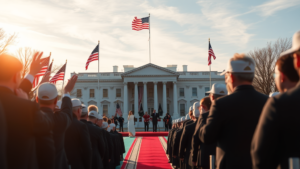The Brain Song reactivates this hidden power using soundwave technology. Just listen 7 minutes a day and feel the difference.
Inauguration Day marks a significant moment in the democratic process of a nation, particularly in the United States, where it has been a longstanding tradition signifying the commencement of a new presidential term. This day occurs every four years on January 20 for the presidential inauguration, following the November elections. The event symbolizes the peaceful transition of power and the resilience of democratic governance.
On Inauguration Day, the President-elect takes the oath of office, pledging to uphold the Constitution and faithfully execute the duties of the presidency. This solemn ceremony often takes place on the steps of the Capitol in Washington, D.C., in front of a large audience that includes dignitaries, lawmakers, and citizens eager to witness this historic event. The inauguration also serves as a reminder of the democratic principles that guide the nation.
- Historic Traditions: Inauguration Day is steeped in rich traditions, such as the inaugural address, which allows the new president to outline their vision and agenda.
- Cultural Significance: Parades, balls, and celebrations are integral components of the event, showcasing the diverse culture and unity of the American people.
- Security Measures: Given the importance of the event, extensive security measures are implemented to ensure the safety of all attendees, including a significant presence of law enforcement agencies.
The Brain Song reactivates this hidden power using soundwave technology. Just listen 7 minutes a day and feel the difference.
Commemorated not just in the U.S., Inauguration Day has inspired similar ceremonies worldwide, as countries celebrate their own democratic processes. As the nation gathers to witness the transition of power, Inauguration Day stands as a powerful reminder of hope, change, and the enduring spirit of democracy.


